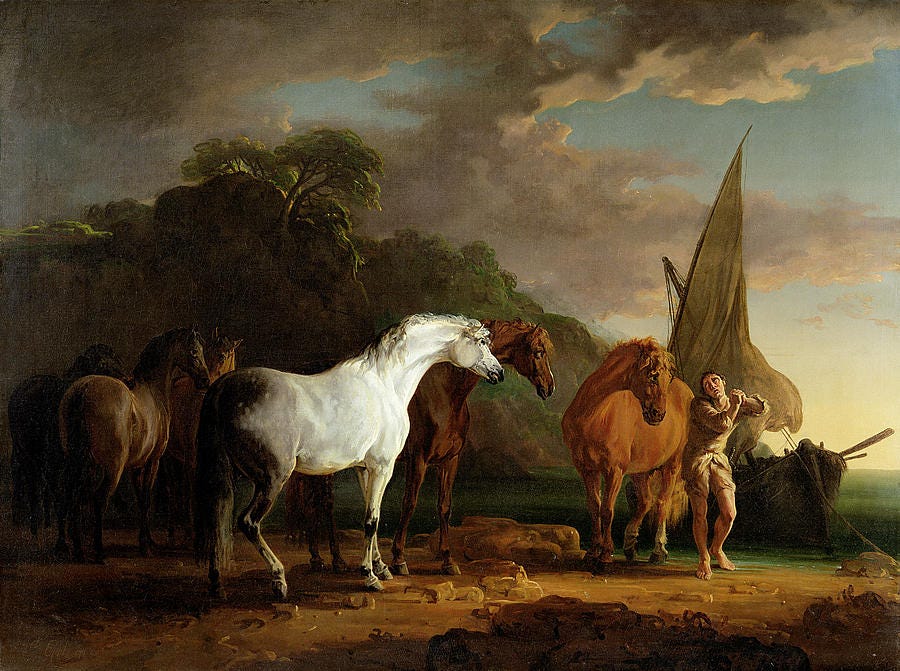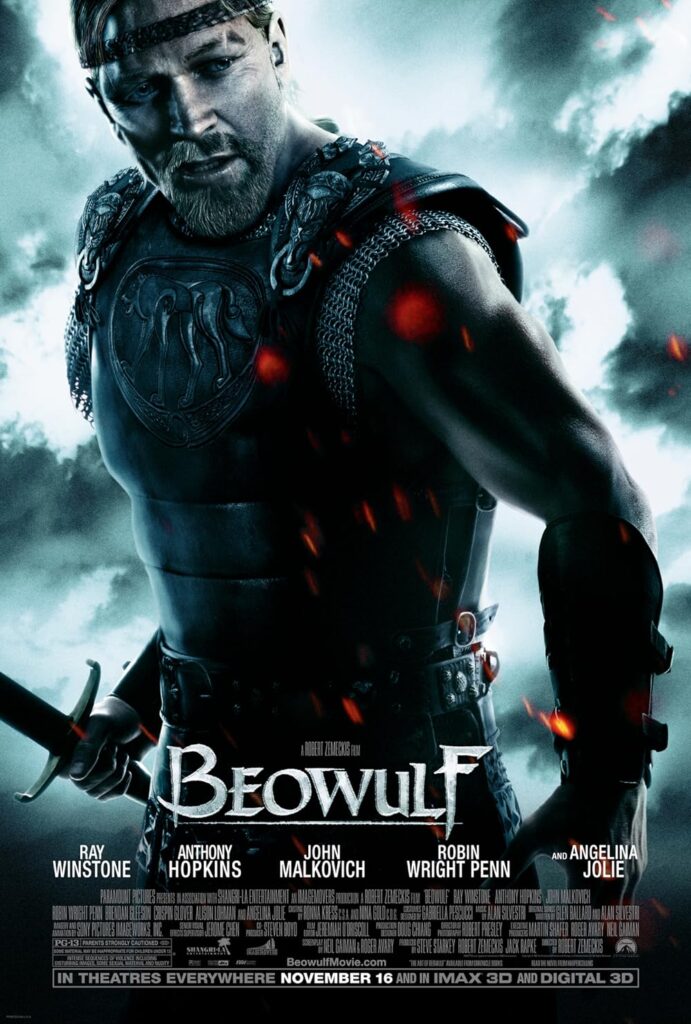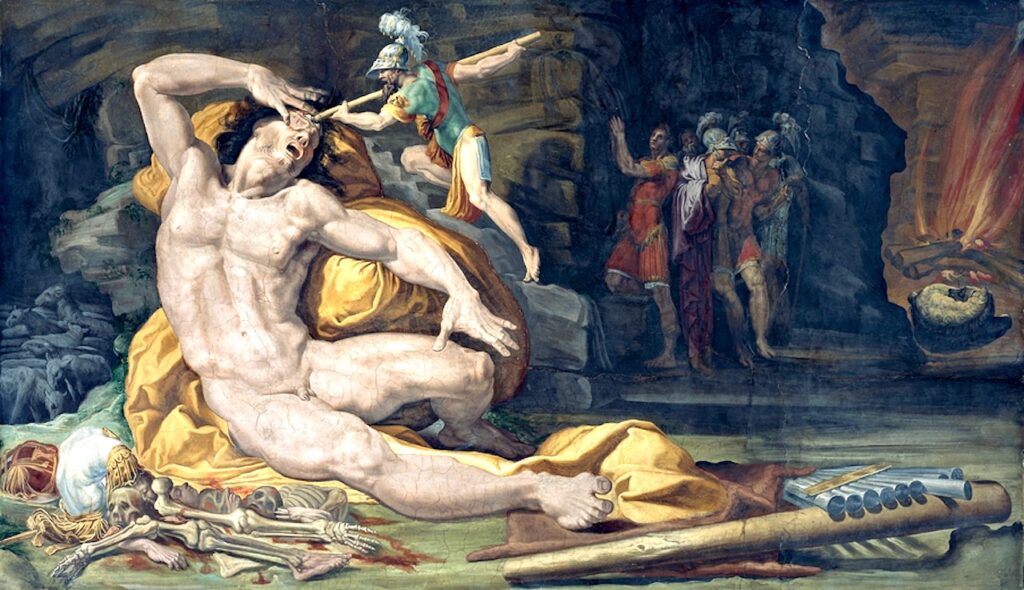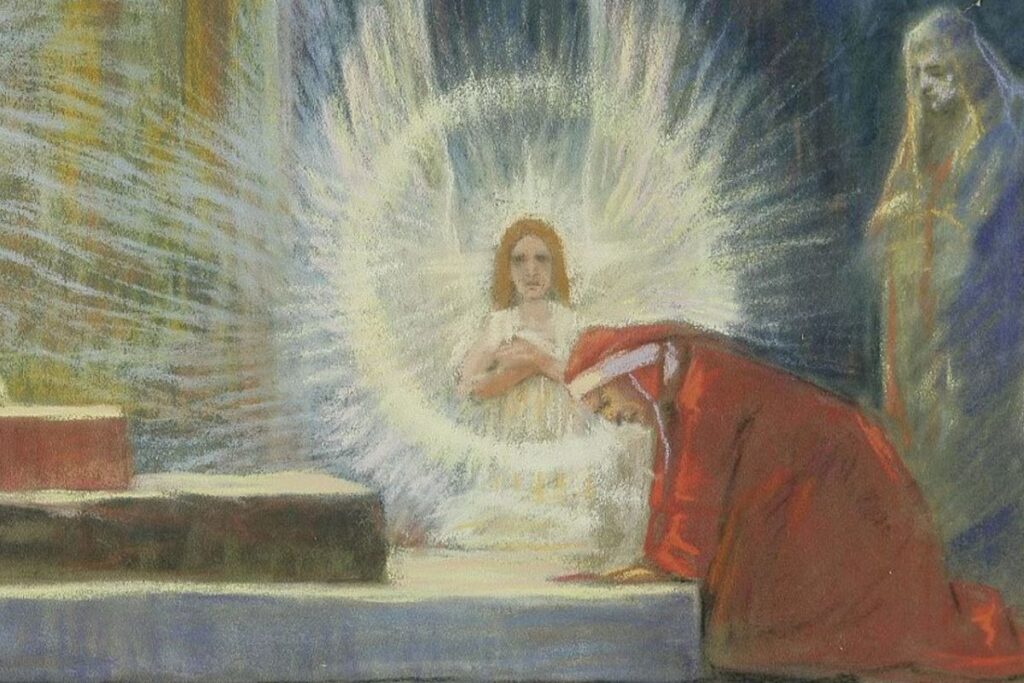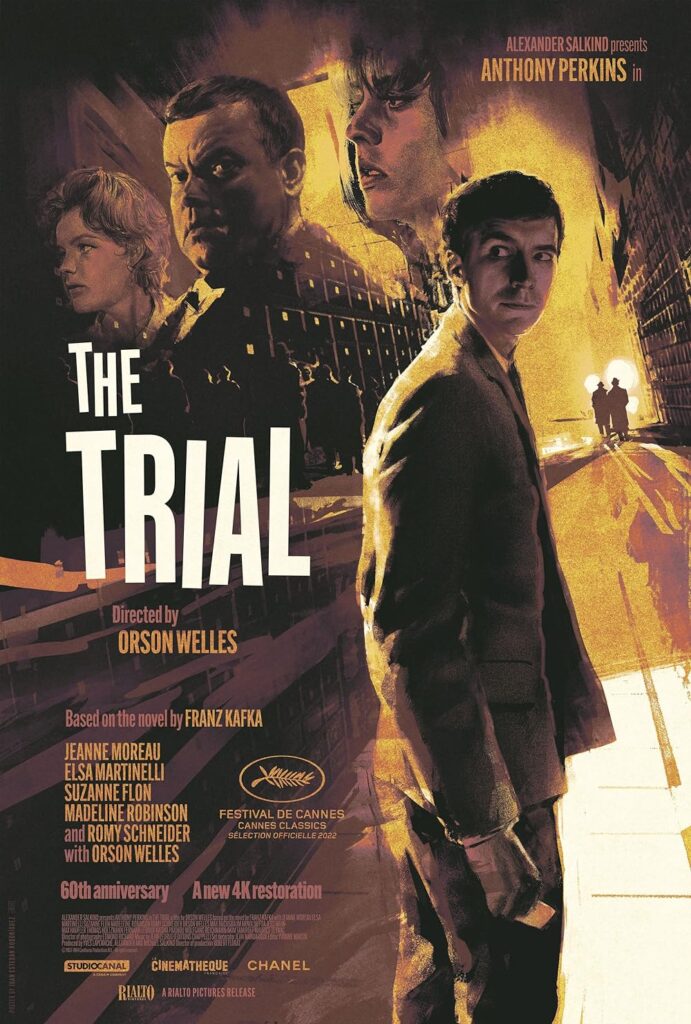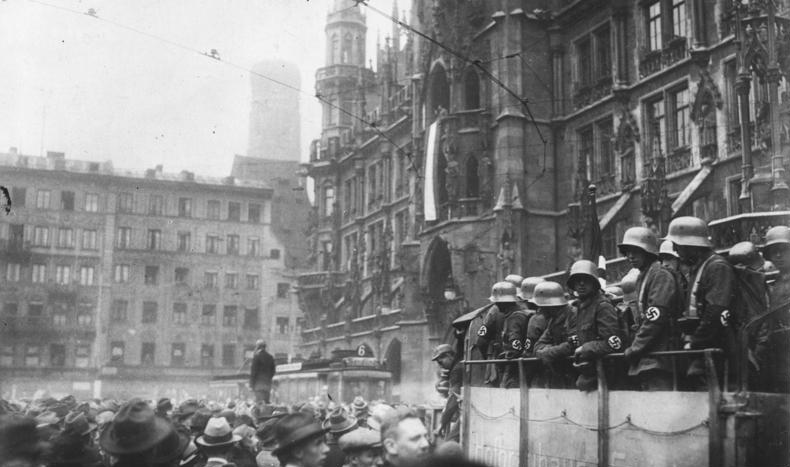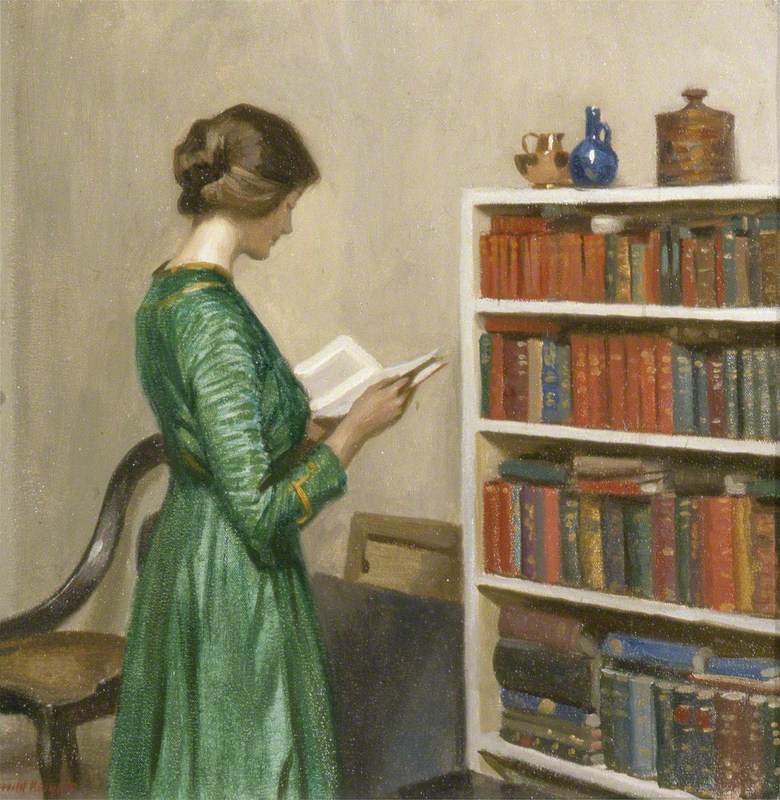Note: If you wish to receive, via e-mail, (1) my weekly newsletter or (2) daily copies of these posts, notify me at rrbates1951@gmail.com and indicate which you would like. I promise not to share your e-mail address with anyone. To unsubscribe, send me a follow-up email.
Tuesday
An interesting interchange I had with reader Dennis Johnson about last week’s Biden-as Hrothgar post last week has me thinking further what Americans want in a leader. While in my view Biden is doing everything we should want in a president—I consider him one of the great presidents in my lifetime—I acknowledge in my essay that he doesn’t inspire those who require inspiring. “Build back better” has never had the force of Ronald Reagan’s “Morning in America,” Bill Clinton’s “bridge to the 21st century, Barack Obama’s “hope and change” (and “Yes, we can!”) and Donald Trump’s “Make America great again.”
As Beowulf can function as a leadership workshop, I think that how he addresses his troops provides some insight into why Democrats and Independents aren’t more excited by the president. For all his strengths, he is no Beowulf.
Early in the poem, Beowulf has had the challenging task of persuading a group of young Geat warriors to travel with him to Denmark to take on Grendel, who is ravaging the great hall of Heorot. In addition to inspiring his men, Beowulf also has to impress Hrothgar. It’s a little like someone from, say, Jamaica striding into the White House and proclaiming, “I hear you have a troll problem. I’m here to solve it.” Here’s his opening boast:
So every elder and experience councilman
Among my people supported my resolve
To come here to you, King Hrothgar,
Because all knew of my awesome strength.
They had seen me boltered in the blood of enemies
When I battled and bound five beasts,
Raided a troll-nest and in the night-sea
Slaughtered sea-brutes. I have suffered extremes
And avenged the Geats (their enemies brought it
Upon themselves, I devastated them).
Now I mean to be a match for Grendel,
Settle the outcome in a single combat.
Predictably, not everyone in King Hrothgar’s court is going embraces this young upstart. But when the contentious Unferth challenges him, Beowulf more than holds his own. Note his strategic use of contempt, followed by claims reminiscent of Muhammad Ali’s predictions of victory:
Now, I cannot recall any fight you entered, Unferth,
That bears comparison. I don’t boast when I say
That neither you nor Breca ever were much
Celebrated for swordsmanship
Or for facing danger in the battlefield.
You killed your own kith and kin,
So for all your cleverness and quick tongue,
You will suffer damnation in the pits of hell.
The fact is, Unferth, if you were truly
As keen or courageous as you claim to be
Grendel would never have got away with
Such unchecked atrocity, attacks on your king,
Havoc in Heorot and horrors everywhere.
But he knows he need never be in dread
Of your blade making a mizzle of his blood
Or of vengeance arriving ever from this quarter—
From the Victory-Shieldings, the shoulderers of the spear.
He knows he can trample down you Danes
To his heart’s content, humiliate and murder
Without fear of reprisal. But he will find me different.
I will show him how Geats shape to kill
In the heat of battle. Then whoever wants to
May go bravely to morning mead, when morning light,
Scarfed in sun-dazzle, shines forth from the south
And brings another daybreak to the world.”
In the 2007 animated version of Beowulf, we see the hero’s companions rolling their eyes at their leader’s over-the-top speeches, but I think this is wrong. When you are going to risk your life for someone, you want him to be confident. King Hrothgar is certainly impressed, feeling the kind of hope that many felt when Barack Obama was elected:
Then the gray-haired treasure-giver was glad;
Far-famed in battle, the prince of Bright-Danes
And keeper of his people counted on Beowulf,
On the warrior’s steadfastness and his word.
So the laughter started, the din got louder
And the crowd was happy…
As Biden’s style is not Beowulf’s, the din tends not to get louder when he speaks.
The problem with promising hope and change, of course, is that disappointment is bound to follow, as it does the following night when Grendel’s Mother attacks. As I noted in last week’s post, Hrothgar is plunged into deep depression, lamenting, “Rest, what is rest, sorrow has returned.” Beowulf’s response is to give him a pep talk:
Beowulf, son of Ecgtheow, spoke:
“Wise sir, do not grieve. It is always better
To avenge dear ones than to indulge in mourning.
For every one of us, living in this world
Means waiting for our end. Let whoever can
Win glory before death. When a warrior is gone,
That will be his best and only bulwark.
So arise, my lord, and let us immediately
Set forth on the trail of this troll-dam.
I guarantee you: she will not get away,
Not to dens underground nor upland groves
Nor the ocean floor. She’ll have nowhere to flee to.
Endure your troubles today. Bear up
And be the man I expect you to be.”
Although it’s a bit unsettling to see Beowulf taking on the king’s role, that’s the job of a leader: when tragedy strikes, one must buoy up one’s people. Obama was very good at this, and Biden too has a gift for speaking to the victims of violence. Trump, on the other hand, was a disaster, whether in consoling widows or rallying the nation to confront Covid.
Beowulf’s words, it turns out, have their intended effect:
With that the old lord sprung to his feet
And praised God for Beowulf’s pledge.
Then a bit and halter were brought for his horse
With the plaited mane. The wise king mounted
The royal saddle and rode out in style
With a force of shield-bearers.
Beowulf is less effective at the end of his life, and it’s worth examining his final speech to his people to figure out why. The poem grapples throughout with the problem of dragon kings, who are rulers who have lost the ability to lead. Some succumb to depression or sadness, some to paranoia. As I read Beowulf’s dragon episode, the hero is in danger of becoming one of these kings. Part of the problem is that, looking back over his life, everything seems meaningless. All he can see is one damn death after another, with no end in sight.
His speech about the dragon disempowers his men. Essentially he tells them that only he can take on the monster. Or as Trump puts it, “Only I can fix it”:
Men at arms, remain here on the barrow,
Safe in your armor, to see which one of us
Is better in the end at bearing wounds
In a deadly fray. This fight is not yours,
Nor is it up to any man except me
To measure his strength against the monster
Or to prove his worth. I shall win the gold
By my courage, or else mortal combat,
Doom of battle, will bear your lord away.”
The result of such leadership is the men turning and running when the fight goes bad:
[H]e who had once ruled
Was furled in fire and had to face the worst.
No help or backing was to be had then
From his high-born comrades; that hand-picked troop
Broke ranks and ran for their lives
To the safety of the wood.
At this point, Wiglaf proposes a different response to hardship, one that involves working together rather than separately:
[N]ow the day has come
When this lord we serve needs sound men
To give him their support. Let us go to him,
Help our leader through the hot flame
And dread of the fire. As God is my witness,
I would rather my body were robbed in the same
Burning blaze as my gold-giver’s body
Than go back home bearing arms.
That is unthinkable, unless we have first
Slain the foe and defended the life
Of the prince of the Weather-Geats. I well know
That things he has done for us deserve better.
Should he alone be left exposed
To fall in battle? We must bond together,
Shield and helmet, mail-shirt and sword.
Bottom-up leadership is replacing top-down leadership, and it proves more effective. When Wiglaf goes to the aid of Beowulf, the tide turns. First Wiglaf shouts encouragement to his king:
Go on, dear Beowulf, do everything
You said you would when you were still young
And vowed you would never let your name and fame
Be dimmed while you lived. Your deeds are famous,
So stay resolute, my lord, defend your life now
With the whole of your strength. I shall stand by you.
Then, together, they kill the dragon:
They had killed the enemy, courage quelled his life;
That pair of kinsmen, partners in nobility,
Had destroyed the foe. So every man should act,
Be at hand when needed…
I don’t know whether Biden’s quiet and cooperative leadership style is guaranteed to get him re-elected, but I know that it gets things done. His cabinet secretaries, who are “at hand when needed,” have been amazingly effective at addressing the needs of the country. Like Wiglaf, they know that working together with their leader is the best way of solving problems. What is seen by many as Biden’s weakness—the lack of a forceful personality—is Biden’s secret strength: he knows how to get people to sacrifice ego for the good of the whole.
So the president resembles Beowulf after all, at least in the way he gives life to his people. In Wiglaf’s words,
Anyone ready to admit the truth
Will surely realize the lord of men
Who showered you with gifts and gave you the armor
You are standing in–when he would distribute
Helmets and mail-shirts to men on the mead-benches,
A prince treating his thanes in hall
To the best he could find, far or near…
If we are do not come to his support, we can expect the future that Wiglaf predicts for the Geats:
Every one of you
With freeholds of land, our whole nation,
Will be dispossessed, once princes from beyond
Get tidings of how you turned and fled
And disgraced yourselves.
In short, if you think you can fight for our democracy only if you are inspired by the president, you have already lost the battle. Or as Wiglaf puts it, you are “throwing weapons uselessly away.”
